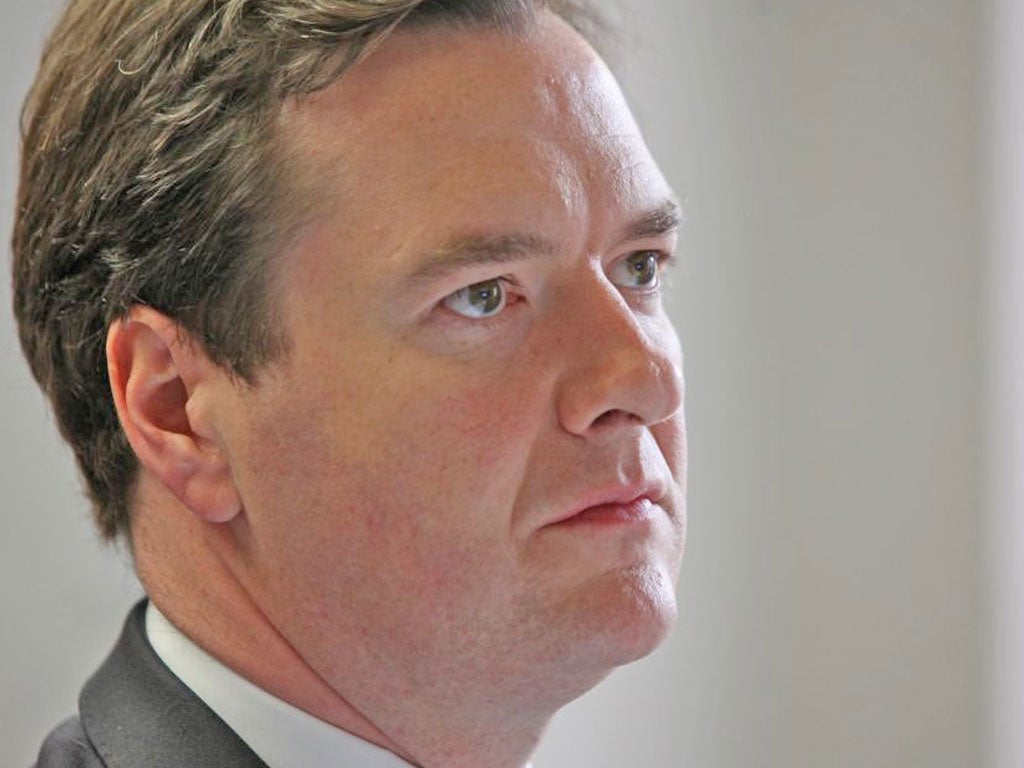George Osborne's austerity drive 'may have to last for eight years'
The IFS said the Treasury may have to identify a further £11bn in cuts and tax rises

Your support helps us to tell the story
From reproductive rights to climate change to Big Tech, The Independent is on the ground when the story is developing. Whether it's investigating the financials of Elon Musk's pro-Trump PAC or producing our latest documentary, 'The A Word', which shines a light on the American women fighting for reproductive rights, we know how important it is to parse out the facts from the messaging.
At such a critical moment in US history, we need reporters on the ground. Your donation allows us to keep sending journalists to speak to both sides of the story.
The Independent is trusted by Americans across the entire political spectrum. And unlike many other quality news outlets, we choose not to lock Americans out of our reporting and analysis with paywalls. We believe quality journalism should be available to everyone, paid for by those who can afford it.
Your support makes all the difference.George Osborne's squeeze on public spending could last three years longer than originally planned with tax rises or additional cuts required to reach his "fiscal mandate", a respected economic think-tank warns.
Monday's "relatively pessimistic" projection from the Institute of Fiscal Studies (IFS) ahead of the Chancellor's Autumn Statement on the economy next week, reveals that Mr Osborne could be forced to extend his public spending reductions into 2018.
The IFS says that the Treasury could need to identify a further £11bn from cuts or tax rises on top of the further £8bn reduction in welfare spending already planned.
Mr Osborne has already had to signal further real-terms cuts of 2.3 per cent in Whitehall spending up to 2016/17 and the slashing of the benefits bill by another £8bn.
The IFS scenario is based on a prediction that the recent deterioration in UK growth prospects and tax receipts continues. Then, the Chancellor would be forced to announce significant further cuts to reach his "fiscal mandate", the IFS said.
Labour seized upon the IFS report as proof that Mr Osborne was "choking-off" the economic recovery.
"The Chancellor should use the Autumn Statement to finally set out a plan to create the jobs and growth which are vital to get the deficit down," said shadow Treasury Minister, Chris Leslie.
Mr Leslie added: "People on low and middle incomes should not be paying the price for this government's economic failure."
The IFS also predicted that Mr Osborne was on course to miss his other fiscal target to reduce the national debt by 2015/16.
It said that, with borrowing set to reach £133bn for the current financial year – £13bn higher than forecast – Mr Osborne may be forced to abandon the 2015/16 debt target.
"Since the Budget, the outlook for the UK economy has deteriorated and Government receipts have disappointed by even more than this year's weak growth would normally suggest," said Carl Emmerson, deputy director of the IFS.
Mr Emmerson added: "As a result, the Chancellor might find himself having to abandon one of his fiscal targets. If much of the additional weakness this year feeds into a permanently higher outlook for borrowing, then in order to comply with his other fiscal target Mr Osborne would need to announce yet more tax rises or spending cuts for the next parliament in next week's Autumn Statement.
"In that case the planned era of austerity could run for eight years – from 2010/11 to 2017/18."
Alison Garnham, chief executive of the Child Poverty Action Group, today said a "perfect storm" was brewing for low-income households with more benefit cuts, service reductions and Whitehall welfare reform planned by the Treasury.
But a Treasury spokesman said last night: "Action taken by the Government has cut the deficit by a quarter whilst over a million new jobs have been created in the private sector, inflation is down, and the economy is healing.
"Britain still faces economic challenges at home and abroad but the Government is taking the tough decisions needed to deal with our debts and equip our economy for the global race."
Join our commenting forum
Join thought-provoking conversations, follow other Independent readers and see their replies
Comments